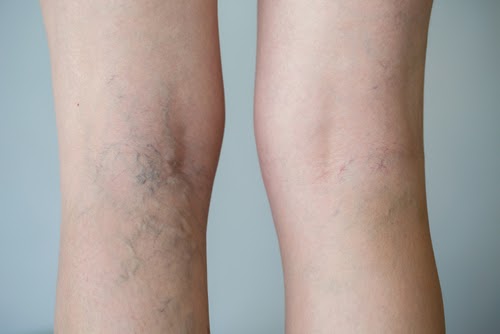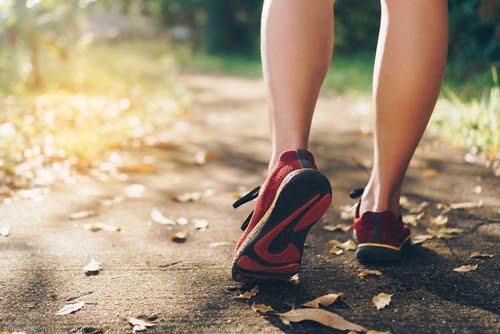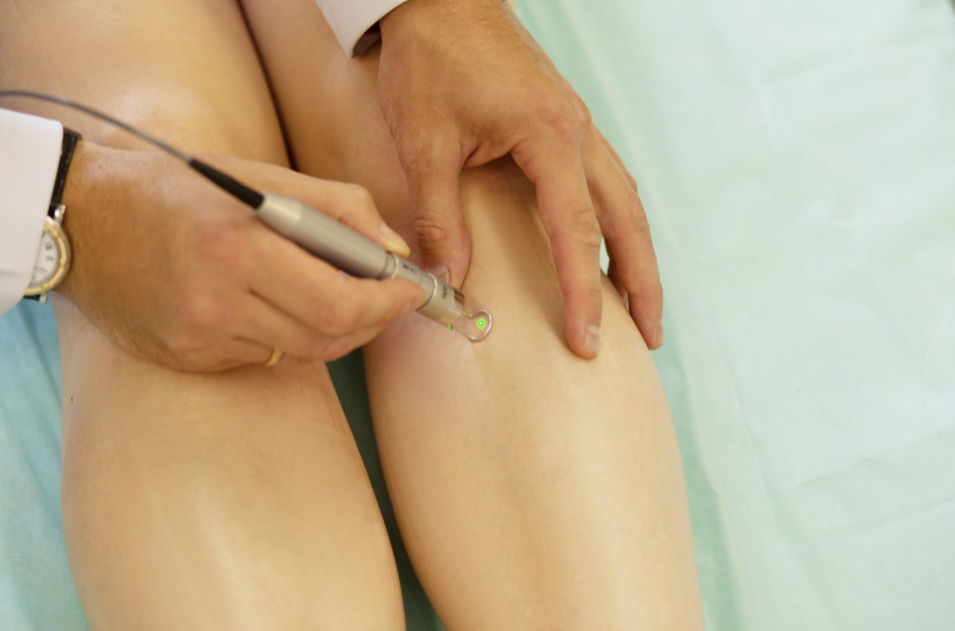Varicose veins have become an extremely common condition in the US. In fact, according to the Cleveland Clinic, reports indicate that a whopping “30 to 50 percent” of the adult population is affected by varicose veins. Many people grow worried about their symptoms and search for varicose vein treatments.
What Are Varicose Veins?
Generally speaking, varicose veins are veins that have become swollen and twisted due to blood pooling and pushing from the inside. They occur when a vein is damaged and can appear bluish, purple, or red-colored in pigmentation. Most importantly, they can usually be distinguished by their enlarged, warped appearance. Spider veins, in contrast, are not swollen and don’t usually protrude from the surface of the skin.
Symptoms Of Varicose Veins

Some common symptoms of varicose veins are as follows:
- Raised dark blue blood vessels, especially in the thigh and calf areas.
- Aching, tender, heavy, or sore legs.
- Swelling in the ankles or feet after standing for a long period of time, accompanied by varicose veins.
Keep in mind, however, that not nearly all varicose veins cause pain or discomfort. For a majority of people, varicose veins are simply a cosmetic issue. The most common physical symptoms of varicose veins are heaviness or slight discomfort in the legs. Although rare, it is possible however to have complications that lead to bleeding or ulcers.
Severe Varicose Vein Symptoms
In the rare case of a compilation of the varicose veins, there may be more severe symptoms. Keep an eye out for more serious symptoms such as these:
- Swelling that becomes unbearable, or the skin over your varicose veins becomes discolored, ulcerated, flakey, or prone to bleeding. This could be a signal that you are developing stasis dermatitis. To prevent potentially serious circulatory problems the veins may be removed with surgery.
- You have warm, tender, and red varicose veins. This could be a sign of a blood clot in the vein known as phlebitis.
- You have injured a varicose vein resulting in a burst of blood.
If you notice any of these, please seek advice from a medical professional. Although varicose veins themselves typically cause little to no physical harm, complications such as these can be dangerous.
What Causes Varicose Veins?
Generally speaking, varicose veins occur when veins are not functioning as they normally should and blood begins pooling in the vein.
But why exactly does this happen? Let’s talk specifics.
All of our veins have one-way valves that prevent blood from flowing backward. These valves push blood forward and keep it running through the vein properly. When vein valves malfunction, however, blood begins to collect in the vein instead of flowing in a continuous stream. As the blood pools, it begins straining against the walls of the vein, resulting in that twisted bulging appearance that we associate with varicose veins.
Potential causes for varicose veins include:
- standing for long periods of time
- pressure on the midsection of the body, especially the abdomen
- obesity, which adds weight to the body and increases the pressure on the legs
- chronic heart valve conditions, which are usually congenital
- pregnancy
- Menopause
Why Do People Get Varicose Veins?
As we mentioned earlier, varicose veins occur when the valve inside of a vein is damaged. Most of the time, varicose veins are a more or less random occurrence and are very difficult to 100% prevent.
Having said that, there are a handful of risk factors that may increase your chances of developing varicose veins.
Here are just a few of the most common ones:
- Sex
- Age
- Pregnancy
- Family history of varicose veins
- Obesity
- Standing or sitting for long periods of time
Since women are more prone to varicose veins, they represent a good majority of this adult group. Men get varicose veins as well, but in most cases the majority of varicose vein cases involve women.
Varicose Vein Treatments
The varicose vein treatments that we use at The Vein Centre are both tried-and-true traditional treatments and advanced vein treatments. Specifically, we use the following treatments. Click the links to learn more about each treatment, or schedule an appointment to ask one of our experts about which vein treatment will be best for you.
How Do You Prevent Varicose Veins?
Although there is no 100% surefire way to prevent varicose veins, there are some things that you can do to reduce your risk of developing varicose veins.
The following changes can help prevent varicose veins from forming:
- Regular exercise/staying active.
- Maintaining a healthy body weight.
- Elevating your legs.
- Refraining from crossing your legs for long periods of time.
- Elevate your legs whenever you’re resting or sleeping.
As well as other things that help the blood in your legs keep circulating.
Lifestyle Changes To Prevent Varicose Veins

As we mentioned earlier, the best thing you can do to prevent varicose veins is to stay moderately active and keep an eye on your weight. Maintaining a healthy BMI can help keep the pressure on your legs to a minimum.
Medical experts also recommend refraining from sitting or standing in one position for long periods of time. Holding the same position isn’t good for keeping your blood circulating.
In other words, if you’re an office worker, the best thing to do would be to get up and move around every once in a while. As for workers that stay standing in one position for extended periods of time, shifting and/or taking breaks to walk around and shake out your legs is also a good idea.
Please keep in mind, however, that varicose veins can occur randomly due to genetics, and even a perfectly healthy lifestyle isn’t a guarantee of no varicose veins.
Frequently Asked Questions About Varicose Veins
Here are some more answers to common questions:
How to cure varicose veins with vinegar?
Generally speaking, most home remedies such as this have little evidence proving their effectiveness. The best treatment is almost always medical intervention and exercising in moderation. Having said that, always consult a vein specialist. Since home remedies can sometimes help relieve mind symptoms of discomfort, your doctor may recommend giving it a try.
Do varicose veins go away?
Generally speaking, varicose veins do not usually go away on their own. Exercising regularly and losing excess weight may temporarily improve symptoms, but it is not likely to completely get rid of the varicose veins. Having said that, there are a number of medical treatments that can get rid of varicose veins. For example, sclerotherapy is a very common one.
Do varicose veins go away after pregnancy?
Most often, varicose veins significantly improve and/or fade a few months after delivery. Occasionally, however, some of these varicose veins can stick around for longer. If you do wish to get rid of those pesky varicose veins caused by pregnancy, don’t hesitate to reach out to the Vein Centre. Our experts can evaluate your veins and recommend a treatment.
Can varicose veins hurt?
Most of the time, varicose veins do not cause significant pain. Some discomfort or “heaviness” in the legs is fairly common, but it’s not usually described as a striking pain. If you do notice abnormal pain, bleeding, or other alarming symptoms, do not hesitate to reach out to your medical provider. Occasionally, varicose veins can develop some concerning complications.
How to treat varicose veins?
There are a variety of treatments that can help treat varicose veins. These vary from laser treatment, to simply wearing compression stockings. The best thing to do is consult a vein specialist that can walk you through your options.
Are varicose veins dangerous?
Varicose veins are not typically dangerous. Most of the time, they are considered more of a cosmetic issue, causing a little discomfort in the legs at most. Having said that, in very rare cases, varicose veins can have complications such as blood clots, ulcers, or bleeding. If you notice any unusually intense symptoms, it’s best to consult with a medical provider sooner rather than later.
What do varicose veins look like?
Varicose veins typically appear as enlarged, twisted veins. These veins will often appear bluish or purple.
The Vein Centre
The Vein Centre is proud to be a cornerstone of vein treatment in the Tennessee region. We offer a variety of treatments for varicose and spider veins, as well as diagnostics. We currently offer most major vein treatments, including sclerotherapy, laser ablation, Varithena®, VenaSeal™, and much more. Our vein clinic has locations in Mt. Juliet and Belle Meade. Not only this, but our locations are well within driving distance of the Nashville area. So no matter where you live in the state of Tennessee, we’ve got you covered!
Simply call and make an appointment. We can evaluate your veins and recommend a treatment option.



